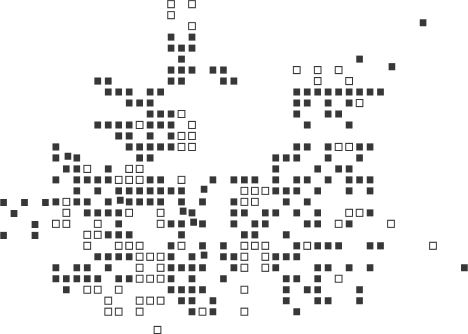More than 110 players from the wastewater industry gave presentations and discussed the energy transition at wastewater treatment plants.
On 14 September 2023, at the invitation of BITControl GmbH from Nattenheim, more than 110 stakeholders from the wastewater industry, municipal utilities, wastewater associations, engineering firms and authorities met to discuss the energy transition in wastewater treatment. The conference took place in the Robert Schumann House with a marvellous view over the city of Trier.
Wastewater treatment plants are generally regarded as the largest energy consumers in municipalities. Measures to save energy, develop renewable generation capacities and ultimately minimise electricity consumption in this sector are therefore of particular importance. In a keynote speech, Professor Mark Oelmann from the Ruhr West University of Applied Sciences demonstrated the prerequisites and potential for the use of Artificial intelligence in wastewater treatment plants. He emphasised how important it is to involve the operating staff in these measures and to make use of their expertise. The savings potential at wastewater treatment plants was highlighted in various presentations. A comparison of the average energy consumption at wastewater treatment plants and the savings already achieved, e.g. at the wastewater treatment plants in Trier, Zweibrücken and Pirmasens, shows a potential of almost 40 %. At wastewater treatment plants, electricity and heat can be utilised first and foremost by using the self-produced sewage gas from sludge treatment. This can already cover around 70 % of the electricity requirement and the entire heat requirement of a larger sewage treatment plant. The remaining electricity requirement is then covered by photovoltaic systems. Thanks to this combination, the city of Trier's wastewater treatment plant has already been energy-neutral for several years. The use of artificial intelligence also plays an important role here.
However, in addition to covering their own requirements, sewage treatment plants are also able to produce more electricity than they consume, as large roof areas and open spaces are sometimes available on the sewage treatment plant site. The Utilisation and marketing of this surplus electricity was a major topic of discussion at the conference. For example, the surplus electricity in a Balancing group are consumed by other properties within a municipality. The municipality then produces a large proportion of its own electricity and can thus significantly reduce its electricity costs. Various local authorities are working on setting up a balancing group. Unfortunately, bureaucracy is still putting some obstacles in the way, as Harald Guggenmos from the VG Schweich explained very vividly and entertainingly. Nevertheless, the municipalities of Konz, Schweich and Ulmen are already well advanced in this area. In the end, confidence prevailed that the balancing group is a very interesting model for the municipalities to massively expand renewable energy capacities within the municipality and thus cover their own electricity requirements to a very large extent.
BITControl had invited participants to the conference to demonstrate practical examples, that energy neutrality is feasible at wastewater treatment plants. The examples presented from the region also show that the system operators in the Eifel and the neighbouring regions are very active in digitalisation, in professional exchange and on the path to energy neutrality and have already come a long way. Finally, the players who want to form a balancing group show how the energy transition can be implemented in an economically interesting and profitable way for the municipalities.











